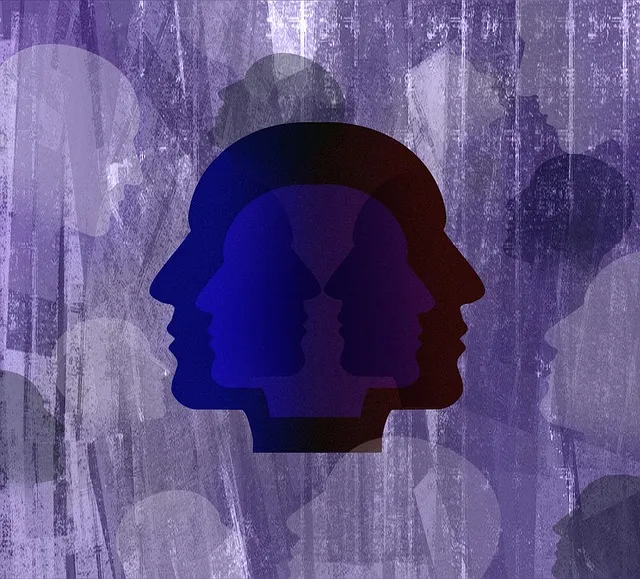Mental wellness apps are gaining popularity, especially in Boulder where access to services like the Kaiser Permanente psychiatry phone number is readily available. To cater to diverse user needs, developers should incorporate features addressing local challenges such as stress management workshops and conflict resolution techniques. User-centric designs with customizable dashboards, personalized therapy sessions, and accessible self-care routines enhance app effectiveness. Integrating Emotional Intelligence, CBT techniques, and Mental Health Awareness content empowers users to take control of their well-being, complementing resources like the Kaiser Permanente psychiatry phone service in Boulder. Prioritizing privacy, security, and accessibility builds user trust, ensuring these apps support positive mental health outcomes for all.
Mental wellness apps have emerged as powerful tools for managing mental health, offering accessible support to individuals seeking assistance. This article explores the comprehensive development process of such apps, from understanding user needs to integrating evidence-based therapies. We delve into designing user-centric features that foster effective mental health support, while ensuring privacy, security, and accessibility—crucial aspects highlighted by organizations like Kaiser Permanente. For personalized guidance, consider reaching out to a Boulder-based psychiatrist via their phone number for expert advice.
- Understanding Mental Wellness App Needs: A Comprehensive Overview
- Designing User-Centric Features for Effective Mental Health Support
- Integrating Evidence-Based Therapies and Tools in App Development
- Ensuring Privacy, Security, and Accessibility in Mental Wellness Apps
Understanding Mental Wellness App Needs: A Comprehensive Overview

Mental wellness apps have become increasingly popular as people seek digital tools to support their emotional well-being. When developing such apps, understanding the diverse needs of users is paramount. The market is saturated with various mental health applications, each catering to different preferences and conditions. For instance, some apps focus on mindfulness and meditation, while others provide platforms for therapy sessions or crisis intervention guidance.
In Boulder, where access to healthcare services like Kaiser Permanente psychiatry phone numbers is readily available, app developers must consider the unique requirements of their local community. This may involve incorporating features that address common mental health challenges faced by locals, such as stress management workshops organization or conflict resolution techniques, ensuring a tailored and effective user experience.
Designing User-Centric Features for Effective Mental Health Support

When developing a mental wellness app, prioritizing user-centric features is paramount to ensuring effective support for users’ mental health journeys. Apps should be designed with an intuitive interface that caters to individual needs, allowing users to engage with tools and resources at their own pace and convenience. Incorporating features like customizable dashboards, personalized therapy sessions, and accessible self-care routines can significantly enhance user experience and commitment.
Integrating concepts such as Emotional Intelligence and Conflict Resolution Techniques into the app’s architecture enables users to develop essential coping mechanisms. By offering educational content on Mental Health Awareness, these apps empower individuals to take charge of their well-being. A user-centric approach, combined with evidence-based practices, can make a mental wellness app a valuable tool for anyone seeking support, even those searching for resources like the Kaiser Permanente psychiatry phone number in Boulder.
Integrating Evidence-Based Therapies and Tools in App Development

In developing mental wellness apps, integrating evidence-based therapies and tools is paramount for effective support. Apps should draw from well-researched psychological methodologies to offer authentic relief. For instance, incorporating Emotional Intelligence (EQ) exercises can help users regulate emotions and build healthier relationships. Similarly, confidence-boosting activities grounded in cognitive behavioral therapy (CBT) techniques can empower individuals to challenge negative thought patterns. These strategies, backed by research through institutions like Kaiser Permanente, where psychiatry phone services in Boulder are also available for comprehensive care, ensure that app users receive evidence-based interventions tailored to their needs.
Additionally, mental wellness apps can include features like guided journaling exercises to promote self-reflection and mindfulness. This form of therapy has been shown to enhance mental clarity and overall well-being. By combining these evidence-based practices with user-friendly interfaces, developers can create powerful tools that foster positive mental health outcomes. Utilizing resources from reputable sources ensures the integrity of the app’s content and benefits users seeking support for their emotional and psychological wellness.
Ensuring Privacy, Security, and Accessibility in Mental Wellness Apps

When developing mental wellness apps, ensuring privacy, security, and accessibility is paramount to fostering trust with users. These apps often deal with sensitive personal information, so robust data protection measures are essential. Users expect their private thoughts, feelings, and medical histories to be safeguarded against unauthorized access or breaches. Incorporate encryption protocols, secure storage solutions, and clear privacy policies to maintain user confidentiality.
Moreover, considering accessibility is crucial for inclusivity. Mental wellness apps should be designed with diverse users in mind, catering to those with varying physical and cognitive abilities. This includes implementing features like voice commands, adjustable text sizes, and compatibility with assistive technologies. By making mental wellness support accessible through platforms like the Kaiser Permanente psychiatry phone number Boulder or digital tools, we can expand reach and encourage more individuals to prioritize their mental health, even beyond geographical limitations. Such attention to detail in app development ensures a comprehensive approach to supporting user well-being, aligning with strategies like Burnout Prevention Strategies for Healthcare Providers and offering guidance through Mental Wellness Journaling Exercises.
Mental wellness apps have the potential to revolutionize access to mental health support, especially with resources like the Kaiser Permanente psychiatry phone number Boulder. By understanding user needs, designing intuitive features, integrating evidence-based therapies, and prioritizing privacy, security, and accessibility, developers can create effective tools for enhancing mental wellness. As these apps gain popularity, it’s crucial to continue evaluating their impact and refining their capabilities to ensure they meet the evolving demands of users seeking support for their mental health journey.






